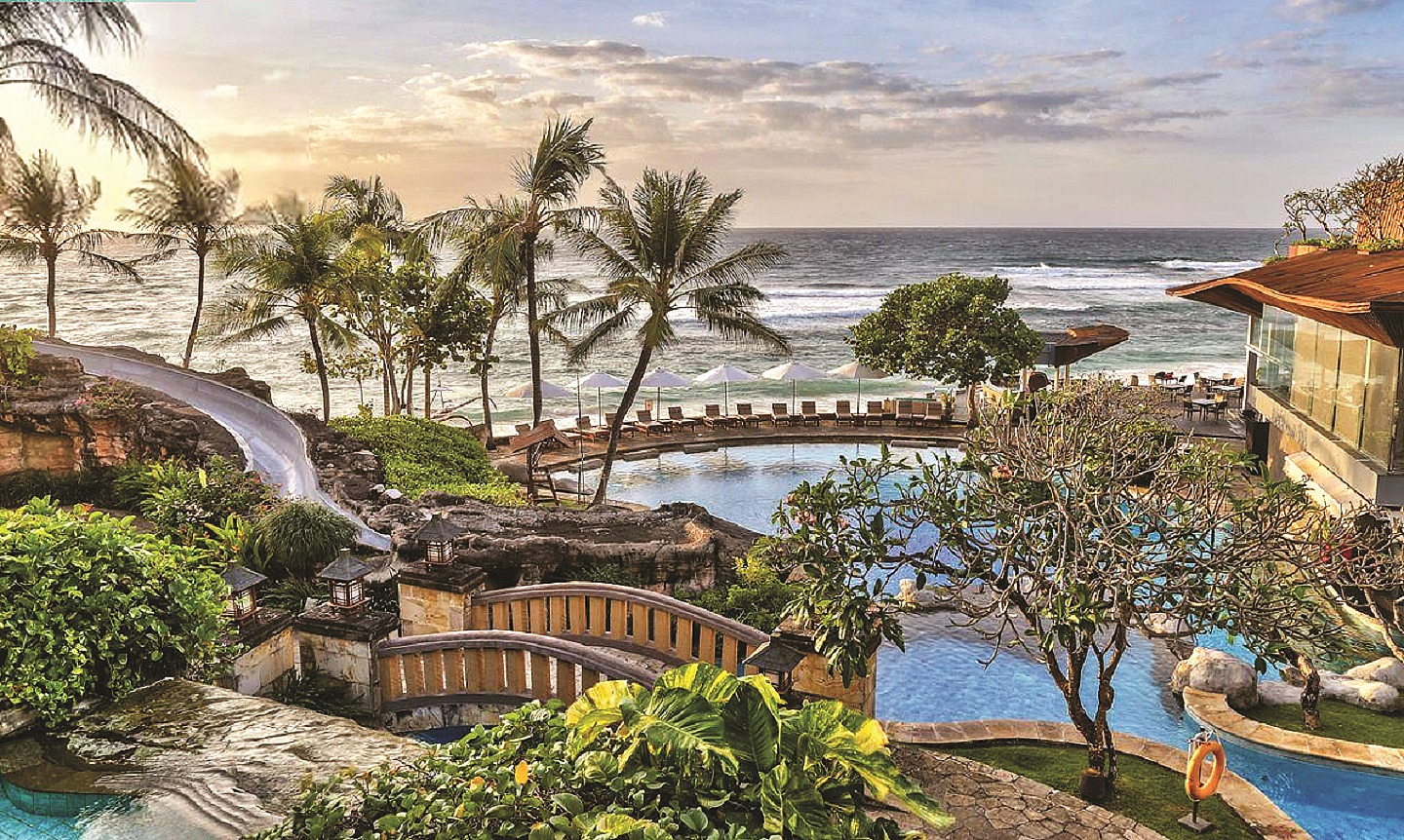
To cater to the shift towards domestic tourism, hotels around Southeast Asia, such as the Hilton Bali in Indonesia, have curated unique experiences that resonate with local sensibilities (All photos: Hilton)
More than a year on from the onset of the global pandemic, there have been many learnings from my work managing 43 hotels across Southeast Asia. One of my key observations is this: The travel and tourism industry directly impacts the region’s economic performance and the well-being of the local community.
Prior to the pandemic, Southeast Asia was set to maintain its robust tourism growth, with a contribution of 12.1%, or US$380 billion, to its gross domestic product (GDP) in 2019, fuelled by international visitors flocking to the region for its unique landscapes and cultural diversity. In Malaysia, initiatives such as the Kuala Lumpur Tourism Master Plan helped the country attract 26.1 million arrivals that year — its highest-ever visitor count to date.
Inevitably, as international travel restrictions took effect owing to Covid-19, the sector was among the hardest hit. The impact on the wider economy was deeply felt, with major destinations around the region expected to suffer significant macroeconomic losses due to the contraction in travel and tourism. A report by the United Nations Conference on Trade and Development forecasts that Thailand will lose a whopping US$47.7 billion (RM193 billion) in GDP, Indonesia over US$20 billion, and Malaysia US$12.3 billion, as a result of the coronavirus.
paul_hutton_vice_president_operations_hilton_sea_1.jpg
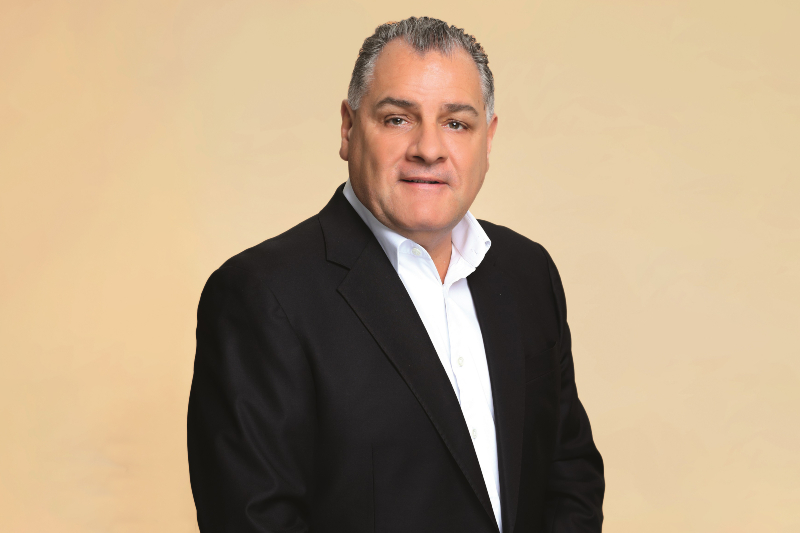
While governments are making every effort to give the industry much-needed support and relief, the scale and intensity of the pandemic will require a concerted effort over the short, medium and long term by both the public and private sectors to encourage steady progress towards eventual recovery.
Tackling immediate challenges
As Covid-19 transmission remains a pressing concern for many countries, it is imperative that service-oriented entities, especially those offering extended consumer experiences such as ours in hospitality, work closely with governments to ensure proper procedures are in place to protect the health and safety of guests, employees and the larger community. There can be no room for complacency here, even more so as we read about new strains of the virus emerging.
Robust measures that enforce the highest standards of health and safety must be developed, rolled out and strictly adhered to. Hilton sprang into action early on in the pandemic by working with hygiene expert Reckitt Benckiser and even Mayo Clinic to launch the Hilton CleanStay programme as a new industry benchmark for cleanliness. This was further supported by the introduction of the EventReady initiative, which aims to facilitate the resumption of meetings and events in a clean, safe and socially responsible manner.
hilton_cleanstay.jpg
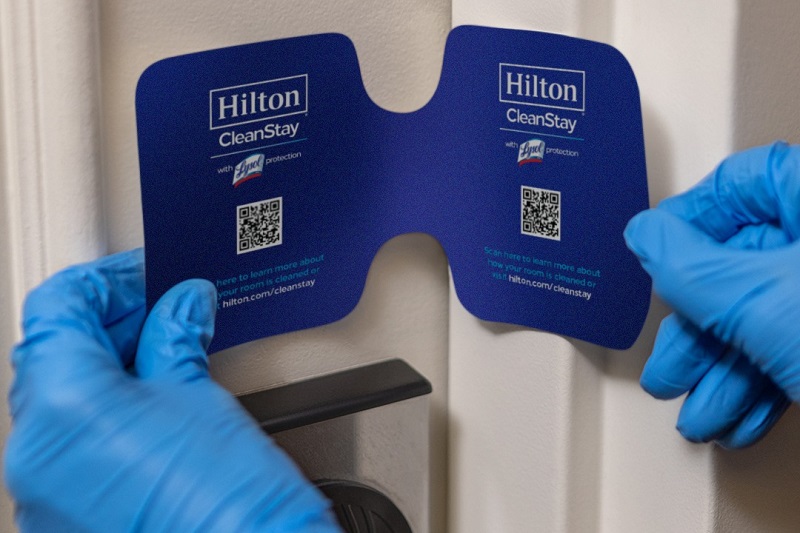
As the world begins to adapt to new realities brought about by the pandemic, such measures have rightly become the norm, especially in meeting consumers’ expectations and giving them a sense of confidence and peace of mind as they return to travel.
Pivoting to sustain businesses and economies
In the medium term, it is important to understand how consumers themselves are changing as they develop new habits and preferences amid the pandemic. With international travel still largely restricted to official or business purposes, leisure travellers are turning to destinations closer to home, while also favouring quality over quantity — in the form of more private wellness experiences or brief escapades they can enjoy with members of their own household.
Travel businesses, including hotels, have to find innovative ways to cater to this shift towards domestic tourism. While still putting safety first, they also have to be agile in identifying travel demand where it exists. Last July, we launched our Dream Away campaign across Southeast Asia to offer tactical discounts for our consumers, focusing on being considerate in pricing while helping them fulfil their desire to travel, albeit domestically, in a safe manner.
hilton_kk.jpg
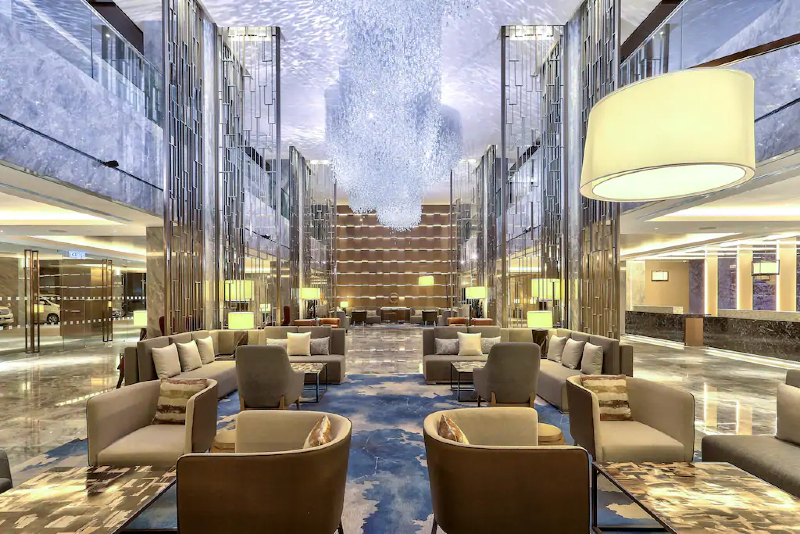
More importantly, hotels around the region curated unique experiences that resonate with local sensibilities as well as current health and wellness needs. Hilton hotels in Kuala Lumpur, Penang and Kota Kinabalu introduced A Day with Me, a structured, silent retreat with day-long activities and the option of audio meditation guides to help local travellers restore their sense of calm and balance.
Such domestic options will be key in helping to revive the tourism industry. In fact, this has had some measure of success in markets like Singapore, where over 300,000 Singaporeans spent government-issued SingaporeRediscovers Vouchers on local attractions and hotel stays, contributing US$27.2 million in vouchers and payments within the first month of the scheme’s launch last December.
The medium-term pivot should be supported by a collective drive to ensure that employees in the industry are well-trained and adaptable. To broaden their capabilities, companies should look towards upskilling their workforce by providing access to training programmes and empowering them to build experiences across departments. Beyond acquiring health and safety qualifications, employees can also undergo IT skills training to prepare for digitalisation, or further hospitality and customer service training. For example, Hilton’s Southeast Asia management trainee programme and its F&B Operations Academy build cross-sectoral agility and prepare the next generation of talent for the future.
hilton_kl.jpg
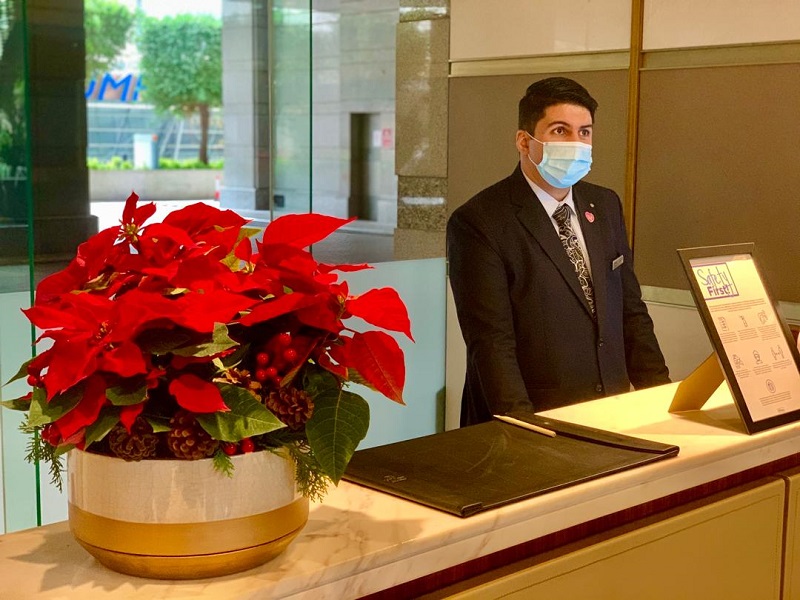
We have always believed the hospitality industry is nothing without its people, so maintaining close contact with those who might be furloughed during this period should also be a priority. We continue to do so across our operations, so that as business returns and hiring resumes, we will be able to nimbly attract and retain top hospitality talent.
Sustainability for the long term
It is crucial that leaders in travel and tourism pay close attention to the longer-term repercussions of the pandemic, some of which may not be immediately apparent. Two in particular merit careful consideration: caring for the well-being of employees in an industry of people serving people, and ensuring that the drive towards environmental sustainability does not lose steam.
According to Microsoft’s Work Trend Index, reduced well-being and burnout at work are major drivers behind deteriorating employee productivity. With Covid-19, these factors have been magnified manifold. The hospitality industry would not make it through the pandemic without our team members’ hard work, passion and commitment, so recognising and honouring their central contributions is not merely a gesture, but a mission-critical priority.
In 2020, Hilton’s annual Team Member Appreciation Week took on renewed significance as we celebrated our employees for their resilience, kindness and acts of hospitality, which shone a light in their communities in dark times. In Malaysia, they worked with Diversey on the Linens for Life project, making face masks using clean, discarded linens and distributing them to local families in Negeri Sembilan. Across Southeast Asia, our team members in the Philippines, Thailand, Indonesia and Singapore donated hot meals and essential supplies to local hospitals, frontline workers and the vulnerable.
112151832_l_1.jpg
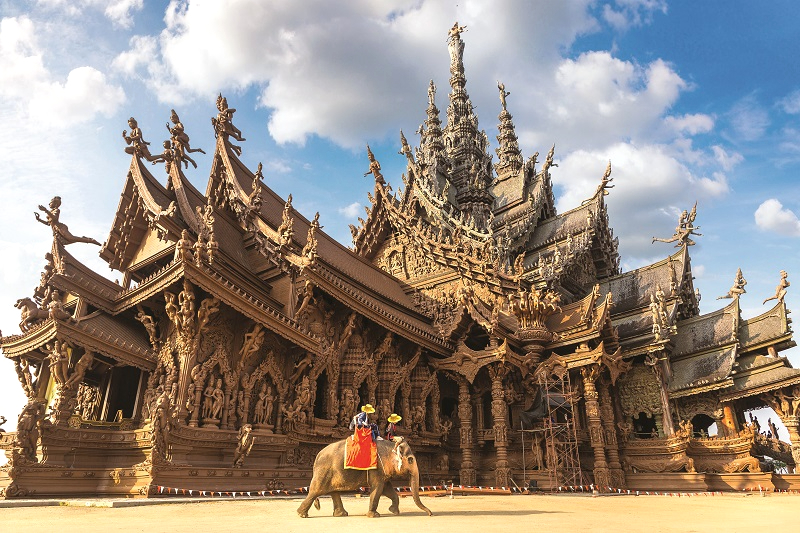
Another long-term consideration is the need to maintain commitments to environmental sustainability. As single-use items and disposable products are widely perceived to offer a direct safeguard against contamination and Covid-19 transmissions, their usage has risen in the last few months. But driving sustainability and sustaining health and hygiene standards are not, in fact, a zero-sum game. If anything, the pandemic ought to awaken a new consciousness about collective responsibility and building back better. This momentum must not be wasted.
Companies can start by redirecting investments in more innovative forms of sustainability. This could include driving energy efficiency with new technologies, optimising kitchens to reduce food wastage, as well as re-evaluating supplier relationships to focus more on local sourcing, which can also cushion supply chain disruptions. Concrete goals detailing action plans and achievable milestones should be set. This promotes shared accountability and measurable goals and supports lasting change. Hilton’s Travel with Purpose 2030 goals, for example, incorporate tangible objectives on reducing water consumption and waste output by 50% by that year, alongside other environmental and social impact targets aimed at leveraging the group’s entire value chain to redefine sustainable travel.
With multimarket footprints and large-scale business models, travel and hospitality companies are well-positioned to make a significant impact in areas of sustainability. Alignment with global efforts, such as the United Nations’ Sustainable Development Goals, can also offer greater synergy and coordination towards a common goal.
Looking ahead
Undeniably, 2020 was not the year anyone had planned for. The pandemic slowed down openings as construction activities had to be paused in many countries to prioritise health and safety. Even so, our pursuit for growth does not cease. We recently announced the opening of Hilton Clark Sun Valley Resort in the Philippines and DoubleTree by Hilton Weerawila in Sri Lanka. This quarter, we are looking forward to DoubleTree by Hilton’s brand entry into Surabaya, with more developments in the pipeline as travel gradually resumes across the region.
doubletree_hilton_sri_lanka.jpg
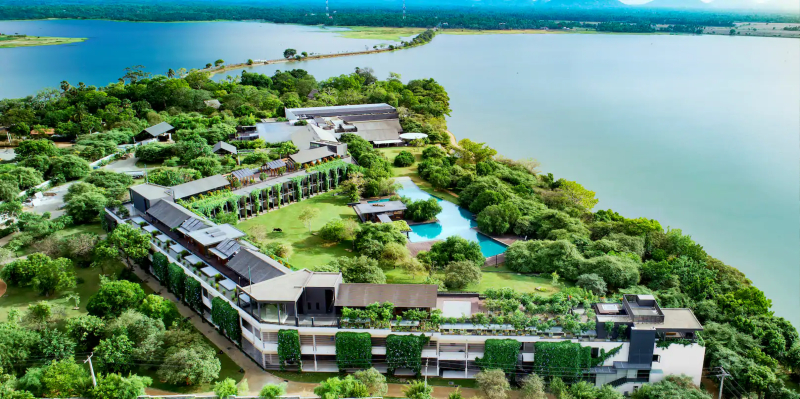
For now, the destinations at the top of my travel list are the ones our hotels are operating in, as my greatest wish is to meet our team members in person again when cross-border travel resumes in a safe manner. Our 12,000 team members across Southeast Asia serve countless guests every day, a constant and powerful reminder that the region’s travel industry bears a special responsibility in pushing forward in a way that is not only commercially and economically viable, but also ensures the safety of travellers and its workforce alike.
Hilton’s goal is to continue creating this positive, lasting impact wherever we operate. This is what we call The Hilton Effect — the positive impact the brand has had, and continues to have, on people, including our communities and guests around the world. As it has been for 102 years, the Hilton Effect remains a commitment, one that is now more important than ever in a world facing numerous challenges and uncertainties.
Southeast Asia’s travel and tourism sector will bounce back, and with community spirit and collective responsibility, there is no doubt we will leap ahead to an even more sustainable future.
This article first appeared on Feb 22, 2021 in The Edge Malaysia.


